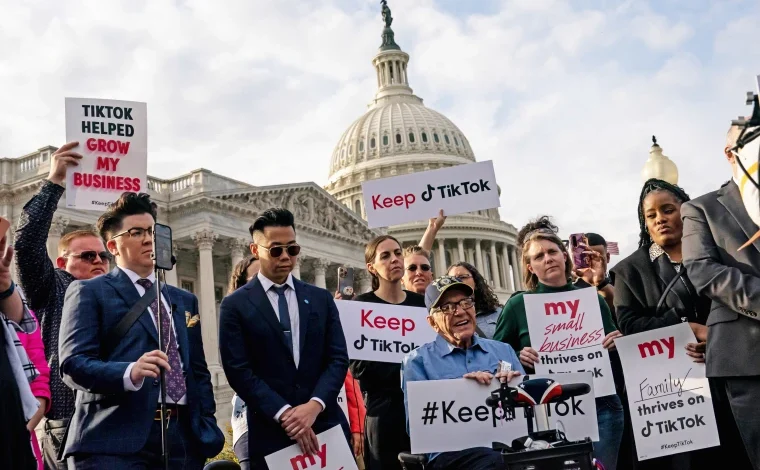
TikTok’s Critical Battle: 15 Minutes to Defend Against Potential US Ban
TikTok is at a pivotal moment this week, as it has just 15 minutes to argue against a potential US ban on its popular app, which boasts 170 million American users. The stakes are high for TikTok, as the company aims to block a new law signed by President Joe Biden that could reshape its future in the United States.
Background of the Legislation
The new law, set to take effect as early as January 2025, seeks to prohibit TikTok from operating on American devices unless its Chinese parent company, ByteDance, divests its ownership. This law could fundamentally alter or even end TikTok’s operations in the US if ByteDance fails to comply.
Legal Proceedings
TikTok and ByteDance have filed a legal challenge, arguing that the law infringes upon First Amendment rights by potentially stifling free speech and limiting access to information. The case is being fast-tracked directly to the US Court of Appeals for the District of Columbia Circuit, bypassing federal district courts. A panel of three judges will hear the arguments and decide whether the law is constitutional.
Court Arguments
The oral arguments are scheduled for Monday at 9:30 a.m. ET. TikTok will have a brief time to present its case, followed by a group of TikTok creators who are also challenging the law. The Biden administration will have 25 minutes to defend the legislation. Each side has about half an hour to make its case.
Key Legal Questions
The central issue is whether the potential risk of Chinese government access to TikTok user data justifies the law’s restrictions on free speech. TikTok argues that the law is excessively harsh and that other measures could address national security concerns without infringing on constitutional rights.
Government’s Position
The US government argues that TikTok’s ties to China pose a serious national security risk. Officials worry that the Chinese government could access sensitive user data, potentially using it for intelligence or disinformation purposes. Despite TikTok’s implementation of Project Texas—an initiative to store US user data with Oracle and create barriers between TikTok and ByteDance—the government considers these measures insufficient.
Challenges in Compliance
TikTok claims it is technologically impossible to separate its app from ByteDance, citing dependencies on proprietary software and algorithms developed by ByteDance. Additionally, the Chinese government’s export controls on software algorithms could prevent the sale of TikTok’s recommendation engine, which is crucial to its operation.
Public and Expert Reactions
The case has attracted significant attention, with filings from numerous stakeholders including US states, civil rights groups, and former national security officials. Critics of the law argue it represents a political and racial bias against Chinese-owned companies, while proponents believe it is a necessary measure to protect national security.
Conclusion
The court’s decision will have broad implications for TikTok and the regulation of foreign-owned digital platforms in the US. The ruling will determine whether national security concerns can override constitutional rights and set a precedent for future tech industry regulations.





